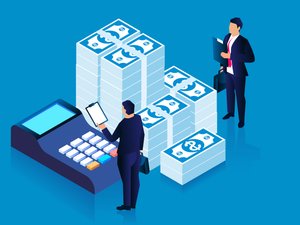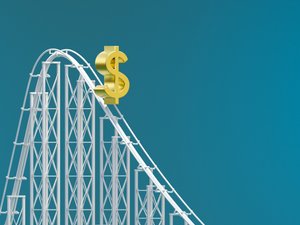
Editor's Note: The original version of this article incorrectly stated this was a Health Wildcatters webinar. The webinar was hosted by Tech Wildcatters, a separate entity. The headline and article have been update to reflect that.
Even after shelter-in-place orders are lifted and national economies emerge from the wake of the coronavirus pandemic, the future of startups and VC investing, like nearly all other things, remains uncertain. And that post-pandemic future will likely look different to many.
To provide some insights into which startup ecosystems will be affected and how, as well as to give some guidance during these times, Dallas-based tech care-focused accelerator Tech Wildcatters hosted one of its first webinars (also, part of the new coronavirus reality) to speak with community members on Thursday.
“Lessons learned from all of this is the world will never be the same after all of this because people realized that they can do things differently or people are scared or less inclined to do certain things and customer behavior will change quickly from this,” said Ricky Tejapaibul, managing partner and CEO at Tech Wildcatters, during the webinar. “Some impacts will be temporary, some will be permanent.”
Though Tejapaibul said almost every startup and industry will be affected differently, Tech Wildcatters sees them fitting into four general categories:
First Degree Impact: These are startups that will be the hardest hit and tend to be the more consumer facing, including startups in travel and hospitality. Already, major airlines have taken hits and startups like Chicago-based Remote Years have had to lay off employees.
Tejapaibul said he expects to see a lot of industry consolidation in these sectors, especially because they are in a position to lose cash quickly. He added that due to current changes in people’s lives and potential future fear may cause people to be less inclined to go back to these types of services and industries.
“We’re also going to see a lot of industry consolidation. The stronger players, they may end up surviving. They may end up merging. But the weaker players are also going to drop away,” he said during the webinar. “So after all this is said and done, the players that survive might actually be in a better position.”
Second Degree Impact: These are companies that are not taking direct hits due to less consumer spending, but are hit by those downturns, including the materials, banking and real estate industries. Tejapaibul said he expects the impact on these types of businesses to be less sustained than those in the First Degree category.
“Because the economy is doing poorly, they’ll have less discretionary spending, less goes around and all that, so they will get impacted for a while and the ones that are strong are going to survive,” he said during the webinar.
Neutral: Including utilities and essentials, Tejapaibul said this category will see little impact due to the importance they already play in people’s lives.
Positive Impact: These are startups that, as the name says, stand to benefit in the aftermath of the pandemic. This category includes health care, remote work and logistics startups. Already, companies like Amazon and Shipt and looking to hire tens of thousands of new workers nationally. Also, healthcare startups around the region have been joining in the fight to slow the spread. In addition, as part of the $2 trillion stimulus package passed on Thursday, telemedicine companies are set to receive $200 million in investments.
Tejapaibul also mentioned that startups dealing with inferior goods may also see a positive impact, due to a decline in buying power and demand for more expensive products. In addition, companies selling products to First Degree companies also stand to benefit.
“The First Degree companies know that they’re in trouble, they’re scrambling to look for way… to cope with that,” Tejapaibul said during the webinar.
He said that when it comes to looking at which individual companies to invest in with Positive Impact startups, as many investors will likely do, it is important to look at each company individually.
"Lessons learned from all of this is the world will never be the same after all of this."
During previous crises, such as 9/11 and the recession of 2008, many people thought that things would not return to normal again. However, it didn’t necessarily play out that way. But Tejapaibul said this pandemic is different.
“Even without an external shock like this the new normal is going to keep changing, but this accelerates the change even faster or it creates a new void that new products start getting introduced to,” he said during the webinar.
And while we are all still in the midst of the outbreak, Tech Wildcatters does see the storm eventually breaking on the horizon, bringing with it some positives.
Tejapaibul said that in the coming months and years, he expects there to be an acceleration of viable technologies coming to the market, which means that eventually capital will begin being deployed quickly as well. However, that does mean some investors my pull out from underperforming companies more quickly and some startups will likely have to pull the plug.
Tech Wildcatters is preparing for its 8th fund, which it expects to begin deploying in the next three months.
“So the ones that emerge from this, there’s a lot of possibility,” Tejapaibul said. “There’s going to be a lot of availability of tech and non-tech talent, with many of the tech companies that are starting to cut staff, many of those [employees] are very talented… those people are going to be available at prices that are affordable to startups.”
Throughout the current outbreak, people are looking for answers. So, what is Tech Wildcatters looking at?
First and foremost, Tejapaibul said, Tech Wildcatters looks at the founders of startups. He said that vision and adaptability may be two of the most important characteristics for founders in the months and years ahead. Financially, he said founders should be looking to extend their runway as much as possible, and those facing decreases in revenue should focus their efforts on building out their technologies to prepare to enter the new market.
“The market right now is abnormal due to a sparsity of capital, there’s traditional investors that pull back, even some venture capitalist. It’s a buyer’s market,” Tejapaibul. “There are normal times and there are abnormal times, the company has to have a pathway to profitability a company that can survive on its own during normal times and if this is a temporary shock, once things recover, we will see those companies back to value. But if the company itself is not viable even in normal times, nothing has changed, then it’s very difficult to support those companies.”








